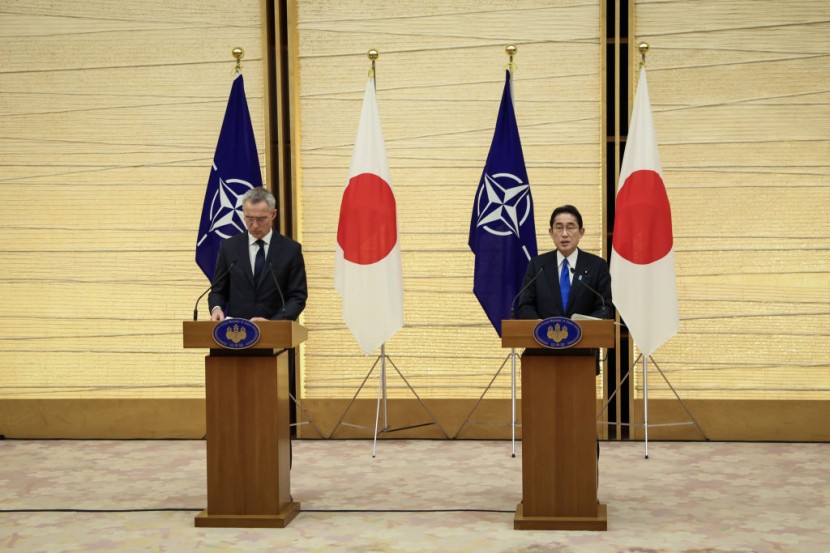Japan is on the move to deepen its ties with Nato and is set to open a liaison office in Tokyo in 2024.
A First in Asia
The new office will be Nato's first in Asia. It will facilitate consultants between the 31-nation alliance and Japan despite the growing challenges to peace and security in the region, according to South China Morning Post. The outstation will also be linked to other nations in the Asia-Pacific.
It can be recalled that the suggestion for a liaison office in Tokyo was proposed earlier this year following the visit of Nato Secretary General Jens Stoltenberg to Japan for talks with Prime Minister Fumio Kishida.
Read also: NATO Chief Unveils Plan To Accept Finland, Sweden as Members of Alliance
A Positive Development for Japan
The establishment of Nato's first office in Asia is seen as a positive development for Japan, as it strengthens the country's ties with the alliance and enhances its security and defense capabilities.
The move also reflects Nato's recognition of the increasing importance of the Asia-Pacific region in global security and its commitment to working with regional partners to address common security challenges. Additionally, the office will provide opportunities for Japan to share its expertise and best practices with other countries in the region.
The Asia-Pacific region has become a pivotal area of interest for many countries, including major global powers such as the United States and China. With its geopolitical significance and economic potential, it is no surprise that Nato has decided to open its first office in Tokyo.

This move will not only benefit Japan but also other regional nations by strengthening their ties with Nato. The establishment of this liaison office is expected to promote cooperation between Japan and other member states on issues related to security challenges in the region.
Moreover, the presence of Nato's office in Tokyo will provide an opportunity for greater collaboration with non-NATO partners who share similar interests in maintaining peace and stability across the Asia-Pacific region. This could lead to joint initiatives aimed at tackling common threats like terrorism, cybersecurity breaches, or maritime piracy.
In addition, experts believe that having a permanent base would ultimately enhance information sharing among intelligence agencies from various countries which are currently facing increasingly sophisticated cyber-attacks believed to be orchestrated by state-sponsored hackers operating within Asian borders.
Overall, setting up an outpost marks yet another significant development towards deepening engagement between NATO allies outside Europe while underscoring shared concerns over rising tensions along disputed waters off East Asia amidst military build-ups amid territorial disputes.
Related article: Finland's NATO Membership Approved, But Why Is Sweden Still Blocked?








